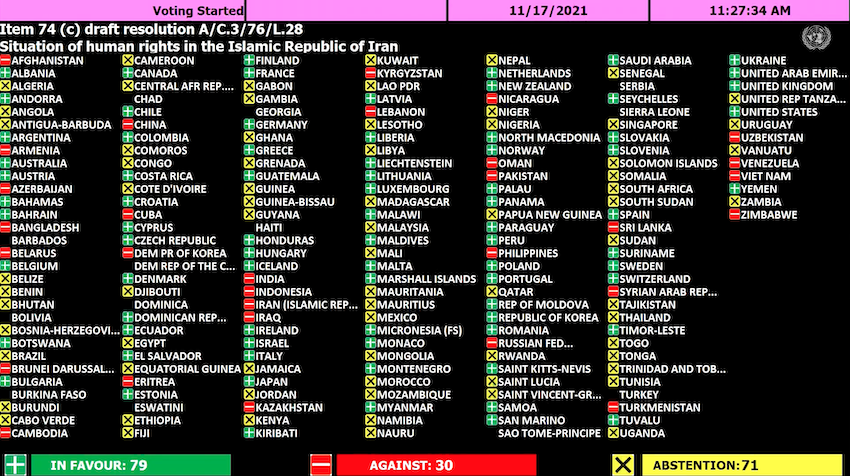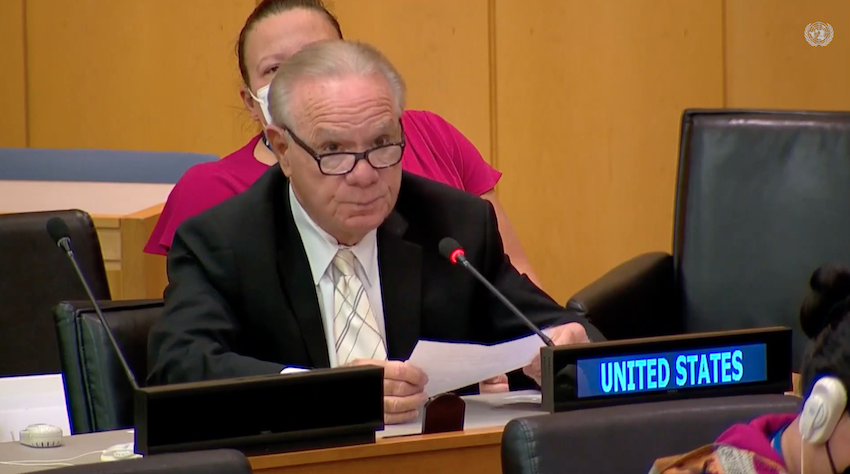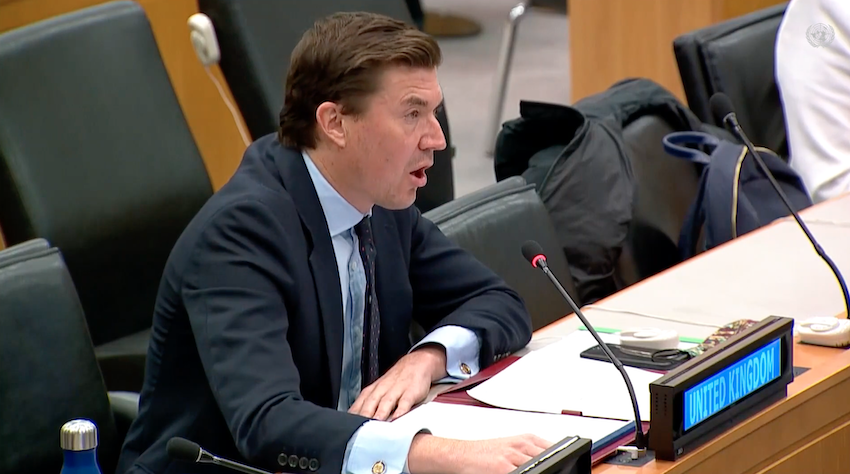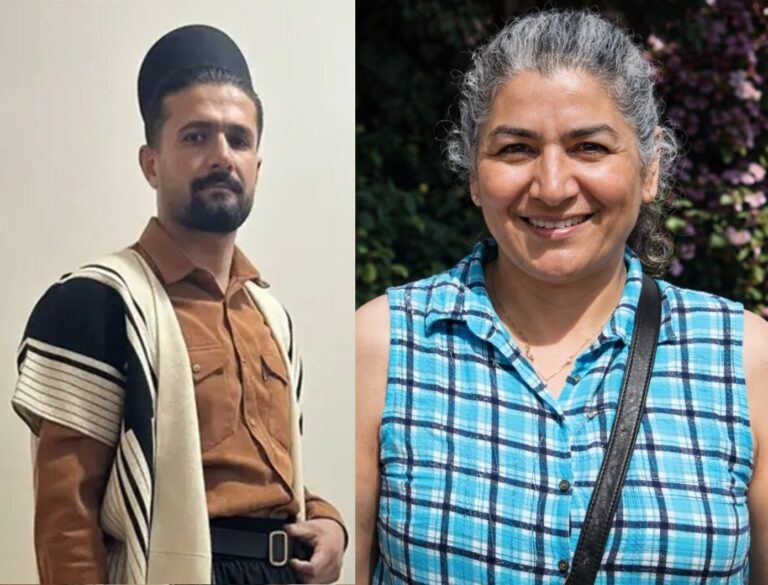The UN’s General Assembly yesterday passed a resolution highlighting “widespread patterns of serious human rights violations” in Iran, including the continued repression of religious minorities.
The resolution, which was presented by Canada on behalf of 47 co-sponsors, was passed by a margin of 49 votes, with 79 in favour, 30 against and 71 abstentions.

Last week, Article18 joined 30 other rights groups in sending a joint letter to all Permanent Missions to the UN in New York, encouraging their support for the resolution, which we described as “a message to the victims of serious human rights violations and the community of human rights defenders in Iran that the international community stands with them in their struggle for truth, justice and reparations including guarantees of non-repetition”.
Representatives from the United Kingdom, United States, Australia, Israel and Japan joined Canada in providing statements in favour of the resolution during the General Assembly session yesterday, while representatives from Russia, Syria, Pakistan, China, Cuba, Venezuela, Belarus and North Korea joined Iran in criticising it as “politicised”. The representatives of Brazil and Mexico also spoke out against reported rights violations in Iran, but abstained from voting.

The US representative specifically mentioned Iran’s “continued repression” of Christian converts, as well as Sufis, Baha’is, Sunnis and Yarsanis. He said these groups “face severe treatment because of their beliefs, including harsh jail sentences”, and urged Iran to “respect the human rights of all, including members of religious minority groups, atheists and non-believers”. Meanwhile, the US State Department yesterday re-designated Iran as a “Country of Particular Concern” for “having engaged in or tolerated “systematic, ongoing, and egregious violations of religious freedom”.
Brazil’s representative also highlighted the plight of the Baha’i community, while the representatives of Australia, Mexico, Canada and the UK cited Iran’s mistreatment of religious minorities without providing specific examples.

As well as dismissing the resolution as “biased”, Iran’s representative said it was “replete with factual errors” and “incited Iranophobia”. She also called into question the human rights records of some of the countries supporting the resolution, including Canada, the US and Israel.
In response, Canada’s representative acknowledged the historic crimes Canada had committed against its indigenous peoples, but added: “We are trying to do better, and in response to those abhorrent acts, we established victim-centred approaches.”

He added: “I would be more than happy to share our experience – past, present and future – with representatives of the Islamic Republic of Iran or any other member state, not because these processes are perfect, but because we believe in collective learning and collective wisdom.”

The UK’s representative added: “It’s a pity that rather than dealing with their egregious human rights record, [Iran] choose[s] to attempt to distract this committee with accepted and historic human rights abuses which the government of Canada is taking full responsibility for, and trying to make amends through an open process of scrutiny, with also a willingness to engage with the UN human rights system. Perhaps Iran could draw inspiration from the example of Canada in setting its focus on the present and their current violations, rather than Canada’s historic issues.”
The British representative also denied engaging in “Iranophobia”, saying: “On the contrary, we are great supporters of the people and citizens of Iran. And this is why we support this resolution, tackling the violations of the government of Iran against their citizens.”
He added: “If errors are present [in the resolution], it may be because [Iran] refuse[s] access or to engage with the Special Rapporteur. If [Iran] truly believe[s] his report and this resolution are inaccurate, they could address this by engaging with him, allowing him in, and engaging on the substance of the issue.”
You can watch the full discussion below:



0 Comments
Trackbacks/Pingbacks